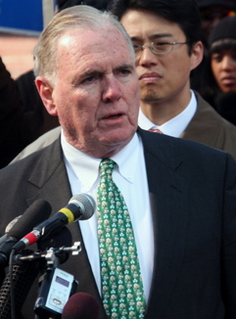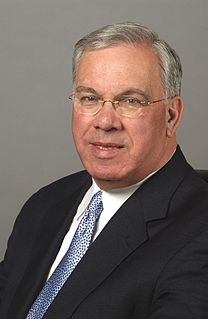
Thomas Michael "Tom" Menino was an American politician who served as the 53rd Mayor of Boston, Massachusetts from 1993 to 2014. He was the city's longest-serving mayor. Before becoming mayor, the Boston native was a member and President of the Boston City Council.
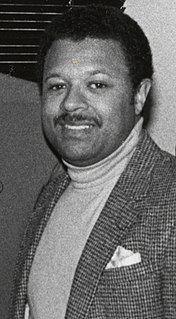
Bruce Carlton Bolling was a politician and businessman in Boston, Massachusetts. He served as the first black president of the Boston City Council in the mid-1980s.

The Boston mayoral election of 1993 occurred on Tuesday, November 2, 1993, between Acting Mayor Thomas Menino and State Representative James Brett. Menino was elected to his first term.

The Boston mayoral election of 1987 occurred on Tuesday, November 3, 1987, between Mayor Raymond Flynn and City Council member Joseph M. Tierney. Flynn was re-elected to his second term.

The Boston mayoral election of 1983 occurred on Tuesday, November 15, 1983, between City Councillor Raymond Flynn and former State Representative Mel King. Flynn was elected to his first term, and inaugurated on Monday, January 2, 1984.

Francis Michael Roache was an American policeman and politician who served as the Boston Police Commissioner from 1985 to 1993, was a member of the Boston City Council from 1996 to 2002, and was Suffolk County Register of Deeds from 2002 to 2015.

The Boston mayoral election of 1975 occurred on Tuesday, November 4, 1975, between Mayor Kevin White and state senator Joseph F. Timilty. White was elected to a third term.

The Boston mayoral election of 1971 occurred on Tuesday, November 2, 1971, between Mayor Kevin White and United States Representative Louise Day Hicks. This was the second election in a row between White and Hicks. White once again defeated Hicks and was elected to a second term.

The Boston mayoral election of 1967 occurred on Tuesday, November 7, 1967, between Secretary of the Commonwealth Kevin White and Boston School Committee member Louise Day Hicks. White was elected to his first term, and inaugurated on Monday, January 1, 1968.
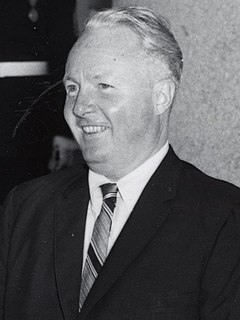
The Boston mayoral election of 1963 occurred on Tuesday, November 5, 1963, between Mayor of Boston John F. Collins and Boston City Council member Gabriel Piemonte. Collins was elected to his second term.

The Boston mayoral election of 1959 occurred on Tuesday, November 3, 1959, between former Boston City Council member John F. Collins and President of the Massachusetts Senate John E. Powers. Collins was elected to his first term, and was inaugurated on Monday, January 4, 1960.

The Boston mayoral election of 1955 occurred on Tuesday, November 8, 1955, between Mayor John B. Hynes and State Senator John E. Powers. Hynes was elected to his third term.

The Boston mayoral election of 1951 occurred on Tuesday, November 6, 1951, between Mayor of Boston John B. Hynes and former Mayor James Michael Curley. Hynes was elected to his second term.
Gabriel Francis Piemonte was an American attorney and politician who was a member of the Massachusetts House of Representatives from 1947 to 1952 and the Boston City Council from 1952 to 1960, 1962 to 1964, 1966 to 1968, and 1970 to 1974. In 1952 and from 1970 to 1972 he was the Council President.
Thomas Charles O'Brien was an American attorney and politician who served as District Attorney of Suffolk County, Massachusetts and was the United States vice-presidential nominee for the Union Party in the 1936 United States presidential election.

The Boston mayoral election of 1937 occurred on Tuesday, November 2, 1937. Boston School Committee member Maurice J. Tobin defeated five other candidates, including former mayors James Michael Curley and Malcolm Nichols.
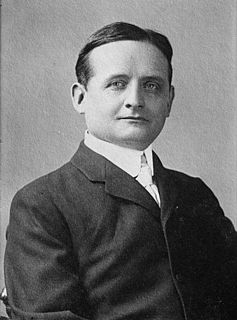
The Boston mayoral election of 1914 occurred on Tuesday, January 13, 1914. James Michael Curley, member of the United States House of Representatives, was elected Mayor of Boston for the first time, defeating Thomas J. Kenny, president of the Boston City Council.

The Boston mayoral election of 1905 occurred on Tuesday, December 12, 1905. Democratic candidate John F. Fitzgerald defeated Republican candidate Louis A. Frothingham, and four other contenders, to win his first term as Mayor of Boston. Primary elections had been held on Thursday, November 16, 1905.


